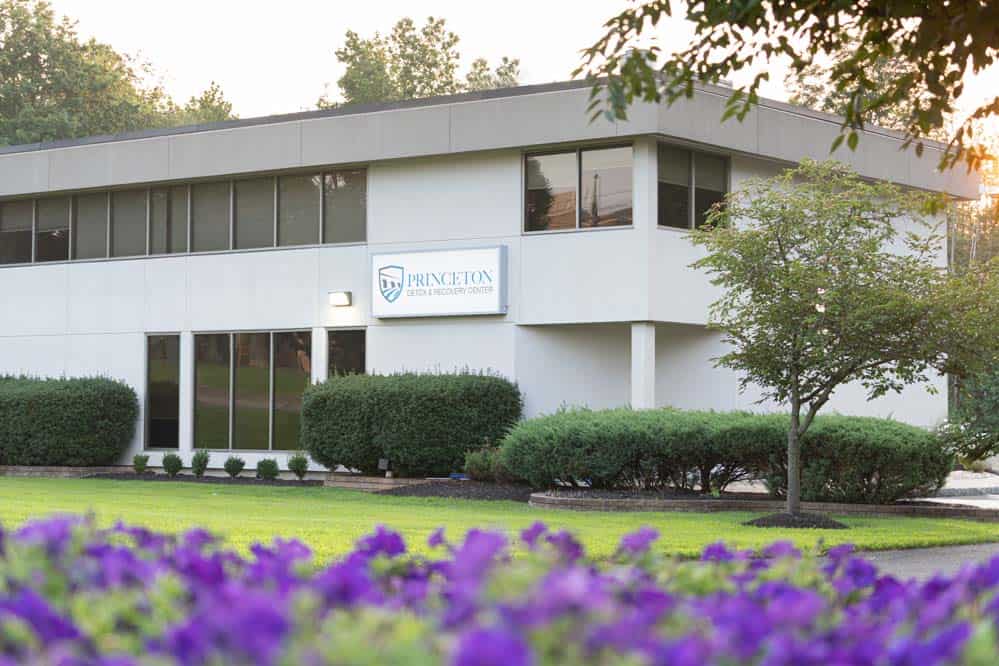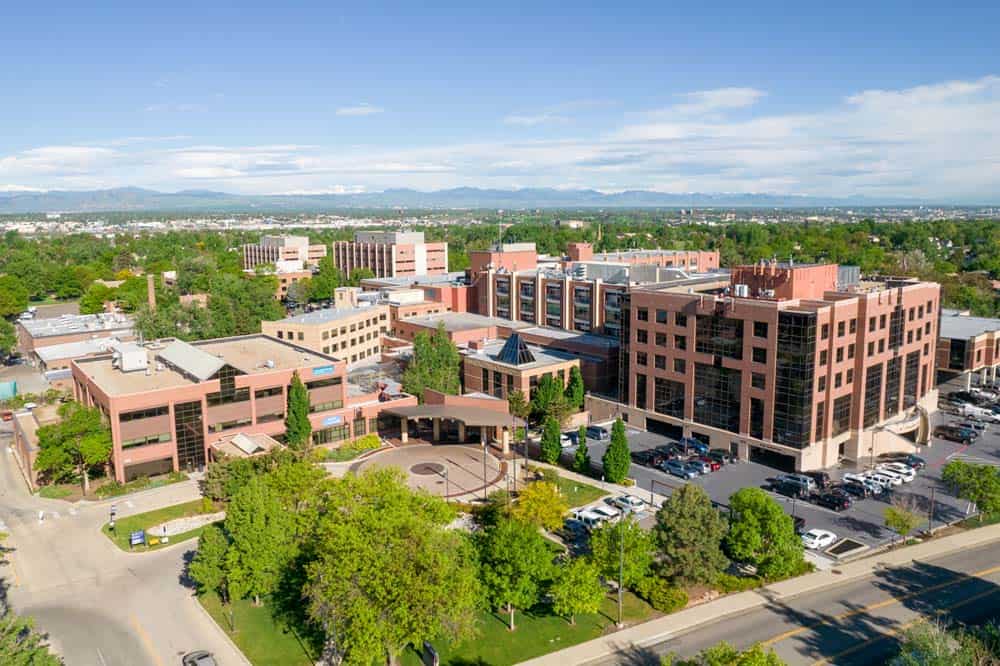Percocet is a powerful pain reliever that has provided relief for millions of sufferers. However, the active ingredient in Percocet — oxycodone — makes it a target for abuse.
If you or a loved one have become dependent on a substance, like Percocet, seeking evidence-based treatment is the best way to overcome addiction. At Guardian Recovery, we offer comprehensive treatment options for those experiencing alcohol and other drug addiction. Providing psychoeducation, therapeutic interventions, and medication assisted treatment, we are dedicated to offering those experiencing substance use with various treatment options all in one place. Contact us today to begin your recovery journey.
Recovery Starts
Here
Choose recovery and take control of your life, it’s the path to a brighter future filled with health, happiness, and fulfillment.
What Is Percocet?
Percocet is a prescription opioid pain reliever that is composed of oxycodone and acetaminophen. It is used to treat moderate to severe pain and can be prescribed in short-term and long-term doses. While it can effectively treat pain, there are risks associated with using Percocet, as it has the potential for abuse and addiction.
Can Using Percocet as Prescribed Cause Dependence?
Using Percocet as prescribed by a doctor does not necessarily lead to dependence or addiction. However, if misused or taken in higher doses than recommended, it can lead to physical dependence and addiction.
Percocet Addiction Statistics
The demographic most at risk for Percocet abuse is those between 18-25 years old, with men being more likely than women to misuse opioids.
According to the National Survey on Drug Use and Health (NSDUH) conducted in 2021, an estimated 8.2 million people aged 12 or older in the United States misused prescription pain relievers, including Percocet, for non-medical reasons in the past year.
The Centers for Disease Control and Prevention (CDC) reported that in 2021, the age-adjusted rate of oxycodone — the active ingredient in Percocet — overdose deaths was 1.5 per 100,000 standard population. The rate of death in males was 1.3 times the rate for females.
In 2019, the Drug Enforcement Administration (DEA) issued a report stating that oxycodone (the active ingredient in Percocet) was responsible for the most prescription opioid-related overdose deaths in the United States.
How Addictive Is Percocet?
Percocet is highly addictive because oxycodone causes euphoria when taken in higher doses than prescribed or misused. The effect on the brain compels you to recreate that feeling by taking more of the drug or mixing it with other substances, such as alcohol or marijuana. Continued misuse of Percocet can also affect mental health, leading to depression, anxiety, mood swings, and suicidal thoughts.
Risk Factors for Percocet Abuse & Addiction Development
Certain risk factors increase the likelihood of developing an addiction to Percocet, including:
- Family history of substance abuse.
- Mental health issues such as depression or anxiety.
- Chronic pain conditions that require long-term use of opioids.
- Social environments that expose you to peer pressure or access to drugs.
Does Percocet Misuse Affect Mental Health?
Opioids, like the oxycodone found in Percocet, interact with opioid receptors in the brain, producing feelings of pleasure and pain relief. However, when taken in excess or without a prescription, the drug can lead to dependence and addiction, which can have detrimental effects on mental health.
Depression
Research has shown that individuals who abuse opioids are more likely to experience depressive symptoms, such as persistent sadness, loss of interest in activities, and hopelessness. This is because opioids can disrupt the brain’s natural reward system, decreasing the production of dopamine and serotonin – two neurotransmitters responsible for regulating mood.
Anxiety
Individuals who misuse prescription opioids are at a higher risk of developing anxiety disorders because opioids can interfere with the brain’s stress response system, leading to increased feelings of worry and fear.
Cognitive Impairment
Research has shown that opioid misuse can cause damage to the brain’s white matter, which is responsible for connecting different brain regions and facilitating communication between them. This damage can result in problems with decision-making, memory, and overall cognitive function.
Demographic Most at Risk of Percocet Abuse
One demographic that is particularly vulnerable to Percocet abuse is young adults aged 18-25. This age group often has easy access to prescription drugs due to their prevalence on college campuses. Additionally, this age group may be more likely to experiment with recreational drug use, which can lead to an increased risk of addiction.
Individuals who have experienced physical or emotional trauma are also at risk for Percocet abuse. Traumatic experiences can lead you to drugs as a way of self-medicating and coping with their pain and distress.
Those who suffer from chronic pain are also at risk of becoming addicted to Percocet. Painkillers like Percocet can provide temporary relief from physical discomfort, but they can also be highly addictive if taken over long periods.
Complimentary Insurance Check
Find Out Today!
"*" indicates required fields
Visible Signs Someone May Be Addicted to Percocet
Signs of addiction to Percocet may include:
- Changes in behavior, such as increased secrecy or isolation, neglecting responsibilities.
- Mood swings, anger, agitation, and aggression.
- An increase in risky behaviors.
Common Symptoms & Side Effects of Percocet Dependence
Percocet dependence creates a wide variety of behavioral, physical, cognitive, and psychosocial effects due to the changes it makes to the brain.
Physical & Psychological Effects of Dependence
Percocet dependence can have both physical and psychological effects. Physically, people may experience withdrawal symptoms when not using Percocet and experience the following:
- Weight loss.
- Slurred speech.
- Slowed heart rate.
- Sleep problems.
- Shallow breathing.
- Problems with coordination.
Psychological effects of Percocet addiction can include agitation, mood swings, depression, anxiety, paranoia, insomnia, and more.
+What Should You Do if Someone Overdoses on Percocet?
If someone you know has overdosed on Percocet, it is important to take immediate action. The first step is to call 911 or your local emergency services number. Do not try to manage the situation yourself.
If naloxone is available, administer it immediately. You do not have to wait for emergency medical services.
Medical professionals will assess the situation and provide appropriate treatment when they arrive. Their actions may include administering naloxone, a medication that can reverse an opioid overdose if given in time. It is also important to let the medical professionals know what drugs were taken and how much was taken so they can provide the best possible care.
Treatment & Rehab Options Available for Percocet Addiction
Percocet addiction is a serious issue that requires professional treatment and rehabilitation. Fortunately, many treatment and rehab options are available for those struggling with Percocet addiction.
Private Programs
Private substance use disorder facilities offer more individualized and comprehensive care than publicly funded programs. Services are generally more integrated, focusing on aftercare and maintaining long-term recovery.
Public & State Funded Programs
Public and state-funded programs provide a viable option for treatment for those who are uninsured or cannot afford the out-of-pocket costs of privately funded programs. The major downside of these programs is that it is often hard to get enrolled. With rates of substance abuse dependence continuing to rise throughout St. Petersburg, finding a vacancy in state-funded detox and rehabilitation centers is challenging, and waiting lists for those with moderate or severe SUDs can be long.
Insurance Based Programs
Most privately funded detox and rehabilitation facilities, like Guardian Recovery, will contact your insurance provider to inquire about coverage. One of our Treatment Advisors will explain your benefits to you in language that is easy to understand, so you will know precisely what your coverage includes. We also offer a number of options if you do not have insurance and will work with you to decide what is best for you.
Free & Medicaid or Medicare Funded Programs
Medicare is a government-funded medical insurance program for people over 65, younger disabled, and dialysis clients. Medicaid helps low-income clients pay for medical expenses. Some treatment programs in St. Petersburg accept Medicaid and Medicare, but these government programs significantly limit your choice of treatment centers. These centers also tend to have long waitlists and large client-to-staff ratios and cannot create a program that addresses your personal needs.
No matter what type of treatment or rehab option you choose for your Percocet addiction recovery journey, it’s important to remember that recovery takes time and dedication. It’s also important to seek support from family members or friends who can provide encouragement during difficult times.
Our Locations
Our Facilities & Teams Transform Lives
Changing lives by providing comprehensive support and rehabilitation, empowering individuals to overcome addiction and regain control of their health and well-being.
Contact Us Today
Addiction treatment programs, like those provided by Guardian Recovery, offer the best chance for recovery. We will work with you to develop an individualized and effective program to help you recover from addiction and get you on the road to long-term recovery. We believe in the benefits of a full curriculum of clinical care, beginning with medical detoxification, transitioning into a higher level of treatment, and concluding with personalized aftercare planning. Your individualized treatment program can include individual, group, and family therapy sessions, case management services, and relapse prevention training. Additionally, we can do a free, no-obligation insurance benefits check upon your request to determine which of our treatment options is covered by your insurance coverage plan. Contact us today to learn more about our treatment options in your area.
SELF-ASSESSMENT:
Do I Have an Addiction Issue?
Disclaimer: Does not guarantee specific treatment outcomes, as individual results may vary. Our services are not a substitute for professional medical advice or diagnosis; please consult a qualified healthcare provider for such matters.
- https://medlineplus.gov/druginfo/meds/a682132.html
- https://www.rxlist.com/percocet-drug.htm
- https://www.samhsa.gov/find-help/national-helpline
- https://medlineplus.gov/ency/article/007285.htm
- https://nida.nih.gov/research-topics/trends-statistics/overdose-death-rates
- https://www.samhsa.gov/find-help/national-helpline
- https://www.longleafhospital.com/addiction/percocet/signs-symptoms-effects/
- https://www.ncbi.nlm
- https://www.drugabuse.gov/news-events/nida-notes/2020/02/opioids-depression-double-edged-sword
- https://www.ncbi.nlm.nih.gov/pmc/articles/PMC5869920/
















